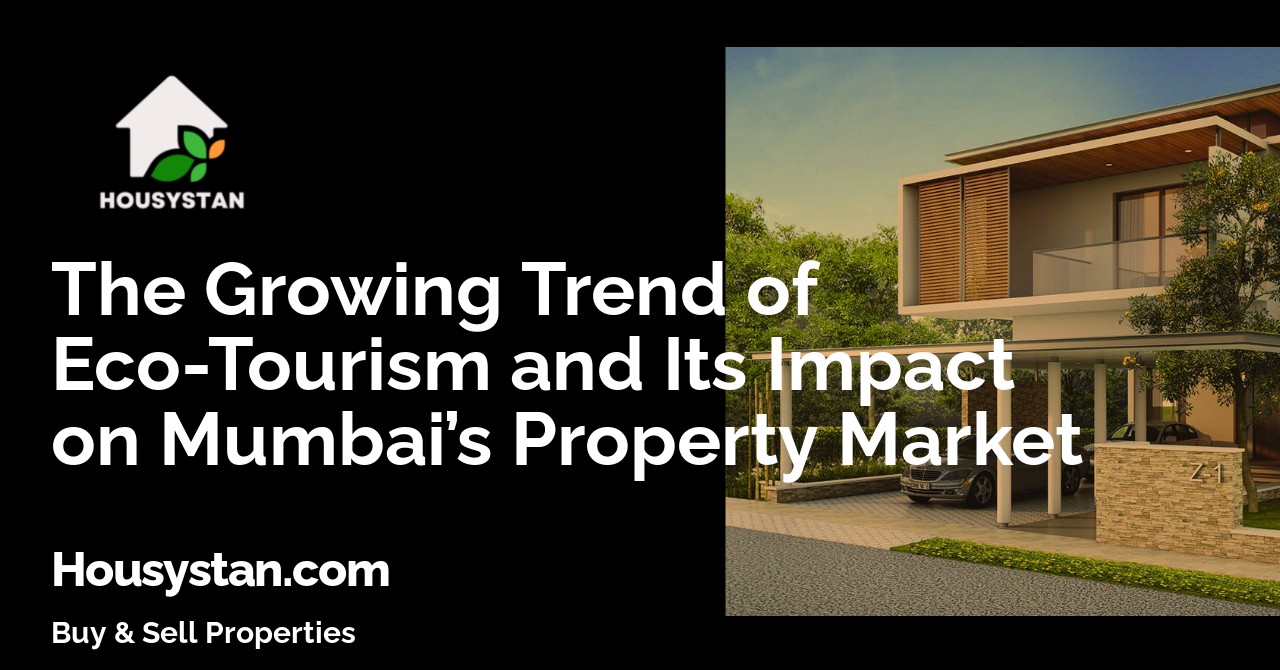The Growing Trend of Eco-Tourism and Its Impact on Mumbai’s Property Market
Read latest blogs and articles from Housystan

The Information mentioned here was last updated on:
29/1/2026The rise of eco-tourism has significantly influenced Mumbai’s property market, transforming the city’s real estate landscape as more individuals seek sustainable travel experiences. Eco-tourism, characterized by responsible travel to natural areas that conserve the environment and improve the well-being of local people, is gaining traction among environmentally conscious tourists and investors alike. Mumbai, India’s bustling commercial capital, is increasingly recognized for its green initiatives, unique biodiversity, and proximity to nature reserves, making it a prime destination for eco-friendly tourism.
As eco-tourism becomes more popular, it directly impacts local property trends. Many real estate developers in Mumbai are now prioritizing green building practices and integrating sustainable amenities within their projects. Features such as rainwater harvesting, solar panels, energy-efficient lighting, and eco-friendly construction materials are becoming standard in both residential and commercial developments. These sustainable initiatives not only attract buyers and renters who value environmental stewardship but also align with global trends toward climate responsibility.
Additionally, the presence of eco-tourism hotspots like Sanjay Gandhi National Park, Aarey Colony, and the coastal stretches along the Arabian Sea has sparked demand for properties in these localities. People are increasingly looking for homes and vacation rentals close to nature, away from the congestion of central Mumbai. This shift has led to a surge in property values in suburban regions and areas adjacent to green zones. Investors are recognizing the long-term potential of eco-focused neighborhoods, which offer a unique blend of urban convenience and natural tranquility.
- Verified Tenants/Buyers
- Unlimited Property Listing
- Zero subscription/charges fee
Moreover, local communities benefit from the eco-tourism movement as it generates employment and encourages sustainable development. The government and private sector are collaborating to promote responsible tourism while preserving Mumbai’s ecological heritage. For those considering real estate opportunities, properties that emphasize green living, energy efficiency, and proximity to eco-tourism sites are now among the most sought-after in Mumbai’s dynamic market. The intersection of eco-tourism and real estate is reshaping the city, offering sustainable living options while contributing to Mumbai’s environmental and economic growth.